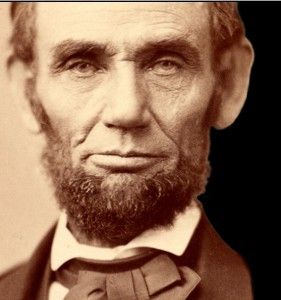 The fight over slavery has escalated religious rhetoric in the North. Emancipation of African slaves is viewed by many Northern Christians as a religious, moral, and patriotic crusade. And although Sunday is not set aside by the government as a holy day (America’s heritage of church state separation precludes such government observances; mail is yet delivered on Sunday, for example), rising Christian nationalistic sentiment has led some Northern Christian leaders to demand that the United States Army observe Sundays as a holy day.
The fight over slavery has escalated religious rhetoric in the North. Emancipation of African slaves is viewed by many Northern Christians as a religious, moral, and patriotic crusade. And although Sunday is not set aside by the government as a holy day (America’s heritage of church state separation precludes such government observances; mail is yet delivered on Sunday, for example), rising Christian nationalistic sentiment has led some Northern Christian leaders to demand that the United States Army observe Sundays as a holy day.
President Abraham Lincoln, although not considering himself religious in any formal denominational sense, has maintained a belief in God since the days of his Baptist upbringing. Sensitive to the religious and moral dynamics of the slavery issue, an issue central to the nation’s commitment to human freedom and critical to victory over the Confederacy, Lincoln, invoking George Washington’s respect for Christianity during the Revolutionary era, makes a pronouncement today that pleases many Northern Christians.
The President, Commander-in-chief of the Army and Navy desires, and enjoins the orderly observance of the Sabbath by the officers and men in the military and naval service. The importance, for man and beast, of the prescribed weekly rest, the sacred rights of the Christian soldiers and sailors, a becoming deference to the best sentiment of a Christian people, and a due regard for the Divine will demand that Sunday labor in the army and navy be reduced to the measure of strict necessity.
The discipline and character of the national forces should not suffer, nor the cause they defend be imperiled by the profanation of the day or name of the Most High.
Culturally, Christianity is the predominant religion in America. Yet Jews (who are few in number in the United States) and some Christians observe Saturday, not Sunday, as their holy day. Historically, Baptists have insisted that the government not recognize any holy days of any religion, maintaining a strict separation of church and state.
In response to Lincoln’s announcement, B. Behrend, a man of Jewish faith from New York, a few weeks hence writes a letter to the President, reminding him of America’s founding as a secular nation and advocating on behalf of Jews and Sabbath Day Baptists:
… you recommend that the officers and men of the army shall observe the Sabbath and do no work on Sunday, because we are a Christian people. But according to the Declaration of Independence and according to the constitution of the United States, the people of the United States is not a Christian people, but a free, sovereign people with equal rights, and each and every citizen of the United States has the right and liberty to live according to his own consciousness in religious matters, and no one religious denomination, be it a majority or minority of the people, can have a privilege before the other under this our beloved constitution.
Now by the order of your Excellency you give the privilege to those officers and men in the army who by their religious creed do observe the Sunday as a holy day and a day of rest; but you make no provision for those officers and men in the army who do not want to observe the Sunday as a holy day, (as for instance those Christians called the Seventh-day Baptists and the Jews, who observe the Saturday as a hold day and a day of rest,) that they may enjoy the same privilege as those who observe the Sunday as a holy day, as well as for the heathen or the so called infidels, who do not want to celebrate either the Sunday or the Saturday as a Sabbath, but choose perhaps some other day as a day of rest.
Now I stand before you as your namesake Abraham stood before G-d Almighty in days of yore, and asked, “Shall not the Judge of all earth do justice?” so I ask your Excellency, the first man and President of all the United States, Shall you not do justice? shall you not give the same privilege to a minority of the army that you give to the majority of it? I beseech you to make provision, and to proclaim in another order, that also all those in the army who celebrate another day as the Sunday may be allowed to celebrate that day which they think is the right day according to their own conscience; and this will be exactly lawful, as the Constitution of the United States ordains it, and at the same time it will be exactly according to the teaching of the Bible, as recorded in Leviticus xix. 18: “Thou shalt love thy neighbor as thyself.”
Collectively, Lincoln’s pronouncement and the response of a Jewish father illustrate a nation in transition from refusing to recognize any holy days to an openness to advocating the observance of at least some holy days in military life, against the backdrop of a perceived need to appease God in order to end the scourge of slavery and obtain victory over the South.
Source: Abraham Lincoln, “November 15, 1862, Order for Sabbath Observance,” in John G. Nicolay and John Hay, Abraham Lincoln Complete Works, Vol. 2., New York: Century Company, 1920, p. 254 (link); “A Jewish Father’s Letter to Abraham Lincoln” (link)


